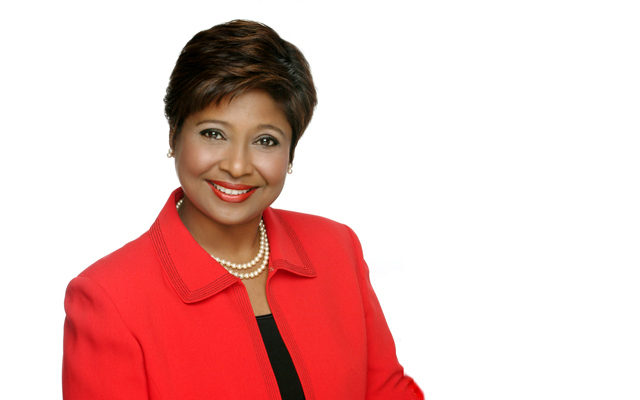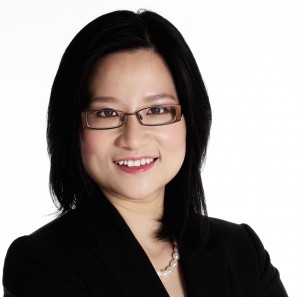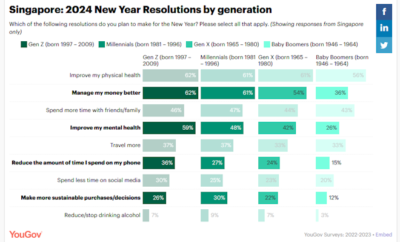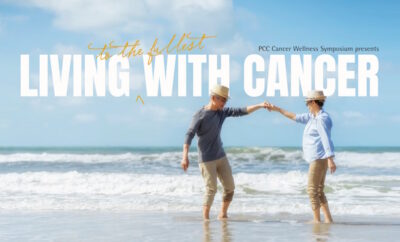
Insights + interviews
In Conversation With Noor Quek & Dr See Hui Ti On Breast Cancer
With Breast Cancer Awareness month coming up this October, we speak with Noor Quek, President of the Breast Cancer Foundation, and Dr See Hui Ti, Senior Consultant of Parkway Cancer Centre on breast cancer and the importance of early screening.
We may all be aware of breast cancer and the importance of early screening by now, but how often do we actually act upon it and go for regular checks?
To understand the need for breast cancer awareness, we interview Noor Quek (NQ), President of the Breast Cancer Foundation (BCF), who was one of the 10 founding members of the foundation. Though not a survivor, she was motivated to initiate the formation of BCF after her now 91-year-old mother was diagnosed with breast cancer at the age of 72. Since then, she has been a keen advocate of breast cancer awareness and strongly believes that early detection can help save lives and breasts.
To get a medical perspective on the topic of breast cancer, we also speak with Dr See Hui Ti (HT), a Medical Oncologist at Parkway Cancer Centre, Mount Elizabeth Hospital. As a member of the International Gynecologic Cancer Society, American Society of Clinic Oncology and the Singapore Medical Association, Dr See specialises in women breast and gynecological cancers.
AA: Hi Noora, could you tell us how common breast cancer is among Singaporean women today?
NQ: Breast cancer is the most common cancer affecting Singaporean women. One in 11 women will be diagnosed with breast cancer in her lifetime – a startling and sobering statistic.
Over the years, we have seen an increasing number of younger women diagnosed with breast cancer, probably because they are more vigilant and take the screening message more seriously.
However, while we do see growing trends of breast cancer in younger women, it is a fact that the likelihood of breast cancer increases with age with those above 40 being more vulnerable.
AA: While many may be aware of breast cancer, not many actually take the necessary steps to get screened early. Could you tell us more about the importance of early detection and some tell-tale signs of breast cancer?
NQ: Regular screening often allows early detection of breast cancer, so the disease is caught before it gets to an advanced stage and is thus more treatable. This leads to a more positive outcome as it means not just a higher chance of survival but also a shorter recovery period. A diagnosis of breast cancer is not necessarily terminal, especially if it is detected early. This is why we advocate for early detection as it could not only save lives, but breasts as well.
There are different ways one can screen for breast cancer. One recommended way is through monthly breast self-examinations. These can be done by women of all ages, whereas other screening methods like mammograms are usually recommended for women above 40, unless otherwise advised by doctors.
Some signs of breast cancer, which every woman can look out for when doing a breast self-examination, include:
- a painless lump in the breast or armpit
- rashes around the nipple
- discharge from the nipple
- changes in the skin over the breast or the nipple
- retraction (pulling in) of the nipple
We have a very useful animated video on our Youtube page that shows you how to do a breast self-examination – produced in conjunction with National Healthcare Group Diagnostics and Health Promotion Board.
It is important not to assume that every lump is cancerous though. In many instances they are not, and therefore familiarity with one’s breasts is important.
AA: Can you tell us more about what BCF does and how we can contribute to this cause?
NQ: A key focus of BCF is in building awareness and advocating the importance of early detection. We reach out to the entire community, including men, to encourage their female colleagues and loved ones to go for regular screenings.
Emotional support and practical help are crucial for women diagnosed with, or are survivors of, breast cancer. This is why we offer a wide range of counselling, education, empowerment and ‘Healing Through The Arts’ activities to our survivors, caregivers and their families which include Zumba, sewing and art.
BCF also educates the general public about breast cancer through targeted talks and events with healthcare and corporate partners to increase awareness and advocate early detection among the wider community.
There are many ways one can contribute to the cause. You could donate or raise funds through your business or with a group of friends, participate or volunteer at one of our events, or invite us to give an awareness talk to your organisation.
Remember to do your part to get screened regularly and encourage the women around you to do the same. Importantly, do not be afraid to start a conversation about breast cancer. We need to talk about it a lot more. This year, ahead of Breast Cancer Awareness Month, we’ve launched the Say #Breast. Save Lives campaign as a first step towards encouraging Singaporeans to open up to the topic of breast cancer by first saying the word “breast”. It is a digital campaign that aims to raise breast cancer awareness by redefining how the word is used in social media today. The campaign includes a social experiment video to demonstrate that there is nothing embarrassing or wrong with saying the word, as well as a community movement that rallies the public to show their support through posting videos of themselves saying the word “breast” with the hashtag #breast and #bcfsg.

AA: Hi Dr See, it is known that the risk of breast cancer increases with age. Which group is most susceptible to breast cancer, and what can they do to prevent it?
HT: Unfortunately the risk of breast cancer is ever increasing and anyone can get it. However, women who have a family history of breast cancer may be at a greater risk. One way to prevent cancer is through a good diet and exercise. A good diet is one that allows a woman to keep an ideal weight and adequate exercise equates to getting around 150 to 210 minutes a week.
AA: What about lumps detected in the breast? Should we be concerned even if they are benign?
HT: While benign lumps do not become cancerous lumps, the association of benign lumps diagnosis in a woman means that there is a statistically higher chance of her getting breast cancer. Therefore, we encourage all women to perform regular screening.
AA: What are some possible treatments available for breast cancer and what are some measures we can take during post-recovery to prevent a relapse?
HT: There are many treatments available and they are divided into surgical systemic medications and radiotherapy. These aim to reduce the risk of occurrence and recurrence of breast cancer. From the patient’s point of view, good exercise and diet still plays a big part in the post-recovery journey.









